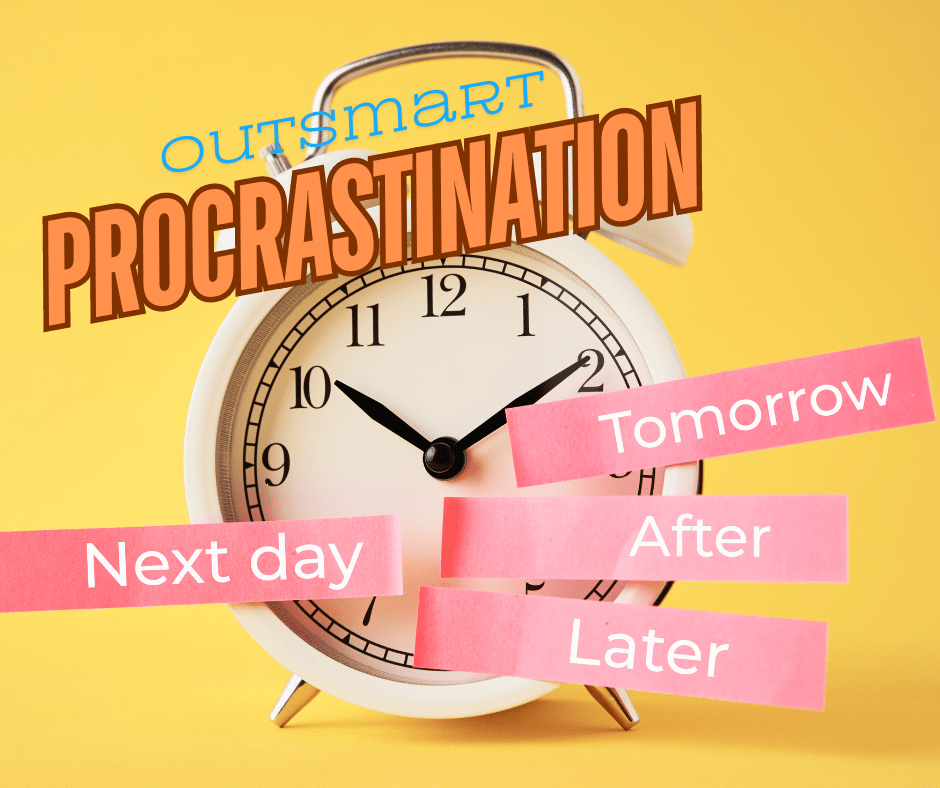
Procrastination: How to Outsmart Your Brain's Sneaky Survival Mode
Share
We’ve all been there—facing that big project with a looming deadline and feeling the sudden, irresistible urge to check our phones, organize our desk, or do anything else. Why do we procrastinate when we know it’s sabotaging our goals? New research suggests procrastination isn’t just a lack of discipline—it’s a form of emotional self-protection. And that knowledge can help us outsmart it.
The Emotional Side of Procrastination
Procrastination often stems from our brain’s desire to avoid discomfort. When faced with a challenging task, we experience negative emotions like anxiety, fear of failure, or self-doubt. These emotions trigger avoidance behavior. Instead of starting that big report, we scroll social media or tidy up the kitchen to avoid confronting those uncomfortable feelings.
Witty Truth: Procrastination is like grabbing that donut—sweet and easy now, but you’ll regret it later. It’s a temporary emotional band-aid for avoiding the real work.
Science-Backed Strategies to Outsmart Procrastination
1. Break the Task Down (and Celebrate Small Wins)
When a task feels overwhelming, our brain automatically labels it as threatening. To counter this, break the project into smaller, bite-sized pieces. Studies show that when we focus on manageable steps rather than the intimidating whole, the emotional resistance decreases.
Actionable Tip: Instead of writing a 20-page report, focus on “write the introduction” or “outline key points.” Celebrate when you complete these small wins, triggering a dopamine hit and giving you momentum for the next step.
2. Use Time Blocking to Create Structure
Research suggests that we are less likely to procrastinate when we have clear boundaries around our time. Time blocking—a method where you schedule specific tasks in blocks of time—prevents distractions and creates a sense of urgency, helping you stay focused.
Actionable Tip: Block 30 minutes to “brainstorm ideas” and set a timer. Knowing you only have a limited amount of time reduces the emotional burden of starting.
3. Practice Self-Compassion
Harsh self-criticism actually fuels procrastination. When we’re hard on ourselves, we create a fear of failure that makes it even harder to begin. Recent studies show that practicing self-compassion can reduce procrastination by easing anxiety and fostering a growth mindset.
Actionable Tip: Be kind to yourself if you procrastinate. Shift the internal dialogue from “I’m failing” to “It’s okay to struggle, but I’m making progress.”
Use the Define My Day Planner to Stay on Track
If procrastination often creeps into your day, the Define My Day Planner can help. With its daily goal-setting framework, you can easily break down daunting tasks into small, prioritized steps. Plus, its focus on reflection and mindfulness encourages self-compassion while holding you accountable.
The planner helps you create a structured approach to your day with time-blocking suggestions, reminders to celebrate small wins, and tips to stay kind to yourself when things don’t go perfectly. By setting meaningful priorities each day, you’ll spend less time avoiding tasks and more time getting things done—without the emotional drain of procrastination.
Ready to get unstuck? Define My Day is the perfect planner to get you out of procrastination mode and into a clear step-by-small step forward mindset. Or, download your digital copy of the Define My Day Goal Planner here and start turning procrastination into productivity today!
